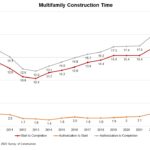When you start investing in real estate, you’re often driven by the promise of financial windfalls and impressive returns. Initially, the hustle and bustle of acquiring and managing properties can be thrilling. But as your portfolio grows, you might find yourself stuck in a never-ending cycle of dealmaking, problem-solving, and even property management—feeling like you’ve just created another job for yourself, leading to burnout and frustration.
If you’ve ever felt overwhelmed by the demands of your investment activities, you’re not alone. This is a common issue among investors who haven’t yet found a balance between their time and investments.
Embrace ROT Calculations
The solution to a more manageable, rewarding investment experience lies in understanding how you want to spend your time and quantifying that value. In my coaching experience, integrating return on time (ROT) calculations into your investment strategy is a powerful tool. It allows you to evaluate how effectively you’re using your time, assess your investment strategy, optimize your operations, and scale your efforts over time. By regularly tracking your ROT as your portfolio grows, you can determine whether your investments are working for you—or if you’re working for them.
How to Align Your Investing with Your Desired ROT
Step 1: Building capital to invest
Most new real estate investors don’t start with a large sum of money, so they trade time for capital. This might involve:
- Working a Traditional Job: Raises, commissions, and bonuses can provide capital to invest in real estate.
- Starting a Side Hustle: Generating extra income through a side business can help kick-start your investment activities.
- Engaging in Real Estate Activities: Strategies like wholesaling, flipping, or small syndications are common entry points for investors building their net worth.
Step 2: Decide how to spend your time as an investor
Once you’ve accumulated enough capital, the next challenge is deciding how to best allocate your time. Do you want to stay actively involved in every aspect of your investments, or are you ready to shift toward more passive strategies?
Here are four ways you can spend your time investing in real estate:
- Ongoing Active Investments: This category involves continuous engagement, such as fix-and-flips, wholesaling, house hacking, self-managing any asset (like short-term/mid-term/long-term rentals, hotels, RV parks), and residential assisted living centers/homes. These investments require ongoing time and attention due to active management but can offer higher returns if you are willing to make that trade.
- One-Off Active Investments: This category has an initial engagement upfront but can eventually be turned over to property management for a longer hold. Options include the BRRRR (buy, rehab, rent, refinance, repeat) strategy on nearly any asset class or joint-venture partnership. While these can be lucrative, they demand an upfront time involvement before they can move over to a management team for the duration of the hold.
- Semi-Passive Investments: With the right team and systems, nearly any asset can be transitioned into a relatively hands-off semi-passive investment. However, if you purchased the asset directly or are in a JV partnership, you retain the day-to-day operational power, which can be good when things are running smoothly, but it can also be challenging when you have sudden or ongoing issues. All in all, these options require periodic oversight but tend to be less demanding than active strategies.
- Passive Investments: A true passive investment is where you are investing your capital and a professional team is managing the entire investment. These types of investments require minimal ongoing effort and include options like raw land, performing note funds, private real estate syndications, and crowdfunding platforms. These investments allow you to enjoy your time, attention, and steady returns with limited active involvement.
Early in your investment career, you may need to be more active than you envision in the long term—and that’s OK. If you’re unsure how active you want to be now or in the future, consider this important question: Do you love real estate?
If real estate is your passion—if you live, breathe, and dream it—then staying actively involved might be the right path for you. However, for most investors, the goal is to eventually shift away from constant hands-on involvement and explore more passive options that require less day-to-day management while still generating solid returns. By doing so, you can achieve a better work-life balance and focus on other aspects of life that matter to you.
Step 3: Track your time and calculate your ROT
Once you’ve chosen your investment path, keep detailed records of the time spent on each deal (you’ll need these records if you want to claim real estate professional status for tax purposes anyway). Documenting your time will help you understand your ROT and make informed decisions about how to optimize your holdings as you move through your investment career.
Here are examples I pulled from my investing career over the years.
Fix and flipping ROT
Many fix-and-flippers who do the manual labor themselves spend 120 to 240+ hours over six months. By outsourcing cosmetic flips on C- and B-class properties, I reduced my time commitment to about 45 hours per project and earned $25,000+ per flip.
In this case, my ROT was:
ROT = $25,000 / 45 hours = $555 per hour
Fix-and-flip projects are excellent for building capital, but great projects may come sporadically, making it hard to rely on them for consistent income.
Buy-and-hold rentals ROT
I transitioned to buy-and-hold rentals, which required just five to 10 hours per month for acquisition, management, and maintenance, thanks to property management systems. A property that netted me $4,000 annually for three years, followed by a $40,000 profit on sale, resulted in:
ROT = ((4,000×3) + $40,000) / 160 hours = $325 per hour
Although the ROT was lower than flipping, the reduced time involvement allowed me to scale my portfolio—at one point 40 SFRs—-and maintain balance across my day job, family life, and investments.
Passive investments
My passive investments typically require one to five hours per quarter. For a $50,000 investment that doubles my equity (earning $50,000 profit) over five years, and with 15 to 20 hours of total involvement, my ROT is:
ROT = $50,000 / 15 hours = $3,333.33 per hour
While it does take capital to invest in passive deals, many investors look to eventually transition their more active holdings into this model since it offers the advantage of rapid scaling, true diversification, the potential to leave your day job, and flexibility to focus on meaningful activities and personal growth.
Final Thoughts
While maximizing your ROT to thousands of dollars per hour might be the ultimate goal, remember that building up to that level is a journey. Whether through fix-and-flip, buy-and-hold, or passive investments, with the right strategies, teams, and systems in place, you can increase your ROT over time.
For the average investor, calculating ROT helps align investment activities with passions, time commitments, and financial goals. By optimizing your ROT, you can create a real estate investment business that works for you—allowing you to focus on what matters most.
Find the Hottest Deals of 2024!
Uncover prime deals in today’s market with the brand new Deal Finder created just for investors like you! Snag great deals FAST with custom buy boxes, comprehensive property insights, and property projections.

Note By BiggerPockets: These are opinions written by the author and do not necessarily represent the opinions of BiggerPockets.



